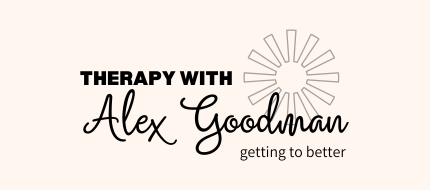Feeling Anxious And Don’t Know Why? Here’s What To Do.
Stress, worry, and anxiety are normal parts of life. Usually, you experience such emotional states because you are trying to solve a problem, avoid something unpleasant, or meet a certain goal. However, you can also feel anxious without an obvious reason and sometimes for no reason at all. When this happens, it can feel difficult to know what to do, but these tips can help.
Check In With Your Body and Sit With How You Are Feeling
If you are feeling anxious, the first thing to do is take some time to notice what is happening in your physical body. Is your heart racing? Is your breathing shallow? Does your stomach hurt? What is telling you that you are anxious?
Then take a big, deep breath.
Checking in with your body can help you feel more grounded and present, especially when you might feel confused as to why you are feeling anxious in the first place. As you notice any physical sensations, see if you can press into these sensations, allowing them just to be there. The point here is not to change how you feel but simply to notice what that feeling actually feels like. While you do so, empathize with yourself and approach your feelings compassionately. You want to focus on allowing yourself to feel anxious and knowing that it is okay to feel this way.
As you do this, you may notice that some of the intensity of your anxiety starts to subside. This is because when we can allow ourselves to feel something, it naturally begins to dissipate.
Assess Your Stress Response
Feeling anxious causes your nervous system to activate your stress response, which moves your body to act. The physical symptoms you feel result from your body's chemical reactions to the stress you are experiencing. When you are actually in a dangerous situation, your stress response allows you to react quickly, almost without thinking. However, it can be harmful when your stress response is activated too often and without a real physical threat.
When you feel anxious without a specific cause, assessing your stress response can help you figure out what your anxiety wants you to do and assist in lessening your distress. Your body's stress response is also known as the fight or flight response because it prepares your body to either fight or run away from danger. There are also three other identified stress responses: freeze, flock, and fawn. Each response has a different purpose and effect on your body.
Fight: Your body prepares to fight when it senses a threat.
Flight: Your body prepares to run away from danger.
Freeze: Your body stops all movement in order to remain unnoticed by predators or enemies.
Flock: Your body prepares to stick with a group of people in order to feel safer.
Fawn: Your body makes itself look weak in order to avoid being attacked.
Freeze and fawn are two responses that you might feel if you are unable to fight, run away, or flock. Therefore, if you are feeling anxious and unsure why, ignore freeze and fawn for now; take some time to explore how your body is feeling and if you can notice any particular response more strongly than another. For example, does your body feel like it wants to run away? That it wants to hit or kick something? Or do you want to connect with someone you can trust?
Once you notice your primary response, start to ask yourself how you might satisfy what your body is asking you to do. If you feel like fighting, hit some pillows, push against a wall, or smack paper towel rolls on a counter. If you feel like running away, go run, run in place, do jumping jacks. If you feel like you need a connection, call a friend, reach out to someone you care for, or turn on a podcast or show that makes you feel comforted.
As you move forward, see if you can continue to notice what your stress response is telling you. In addition, practicing ask yourself how you might satisfy what your body is asking of you and then actively do what feels right for you at that moment.
Distract Yourself
When you feel anxious, sometimes the best and only thing you can do is distract yourself. However, it is important to note that distraction is not the same thing as avoidance. Avoidance is when you try to push away your anxiety by avoiding situations or thoughts that make you uncomfortable. This can be a short-term solution, but it will only make things worse in the long run. Distraction, on the other hand, involves focusing your attention on something else so that you don’t get sucked in or stuck in your anxiety.
In particular, distraction can be especially helpful when you are feeling anxious and unsure why. In these circumstances, you are likely unsure of what to do and not actively avoiding anything, which is why distraction can be a useful tool to help you get through your present discomfort.
Distraction can take many forms. However, here are some ideas:
-Reading a book or magazine
-Watching TV (for example, your favorite show)
-Listening to music
-Listening to a podcast
-Going out with friends
-Exercising
-Engaging in a hobby (for example, drawing, knitting, cooking)


